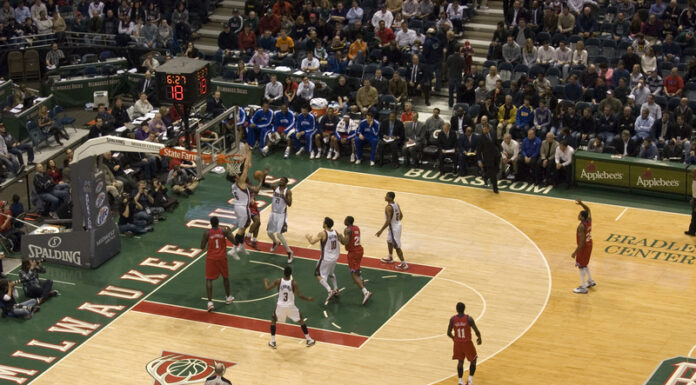Junior Bridgeman, a former NBA player and successful entrepreneur, passed away at 71 on March 11, 2025, after experiencing a heart attack during a public event in Louisville, Kentucky.
Bridgeman was involved in an interview with a WLKY news anchor at the 45th Annual Leadership Luncheon for the Boy Scouts Lincoln Heritage Council at The Galt House Hotel. During the event, he clutched his chest and indicated to those nearby that he was having a heart attack. Emergency services were contacted immediately, and he was transported to a local hospital, where he later passed away.
“Junior Bridgeman was an integral part of our community,” stated Lance George, Chief Marketing Officer of the Al J. Schneider Company, representing the Galt House. “From his athletic impact to his philanthropic efforts, he will be deeply missed. Our thoughts and prayers go out to the Bridgeman family during this time.”
Originally from East Chicago, Indiana, Bridgeman rose to prominence playing basketball at the University of Louisville from 1972 to 1975 under coach Denny Crum. He was named Missouri Valley Conference Player of the Year for his last two seasons and helped lead the team to two Final Four appearances.
Bridgeman was selected by the Los Angeles Lakers in the 1975 draft but was traded to the Milwaukee Bucks, where he spent most of his 12-year NBA career. Known for his versatility, he averaged 13.6 points, 3.5 rebounds, and 2.4 assists per game, establishing his role as one of the league’s best sixth men.
The Milwaukee Bucks retired his No. 2 jersey in 1988, acknowledging his significant influence on the franchise. In February 2025, Bridgeman acquired a 10% minority stake in the Bucks, marking his return to the organization.
NBA Commissioner Adam Silver described Bridgeman as “the ultimate entrepreneur” and a “mentor to generations of NBA players and athletes.” The Bucks organization expressed sorrow over his passing and recognized his extensive contributions on and off the court.
Despite earning no more than $350,000 per season during his NBA career, Bridgeman’s post-playing business achievements were noteworthy. He became one of the wealthiest former athletes globally.
After retiring, he invested in Wendy’s franchises, growing Bridgeman Foods Inc. into a fast-food empire with over 450 Wendy’s and Chili’s restaurants nationwide. He expanded his business interests to include Coca-Cola bottling operations, acquired Ebony and Jet magazines, and co-founded an investment firm, Manna Capital Partners.
Forbes estimated Bridgeman’s net worth at over $1.4 billion at his death, demonstrating a successful transition from athlete to businessman.
In Louisville, where he settled post-career, Bridgeman served on various boards, including the University of Louisville, Simmons College, and Churchill Downs. He co-owned Valhalla Golf Club and ran an annual basketball camp in Milwaukee.
During his NBA career, Bridgeman was active in the Milwaukee community, serving on the board of directors for Milwaukee Athletes Against Childhood Cancer and maintaining connections to the city throughout his life.
Former University of Louisville coach Denny Crum remembered Bridgeman as “a wonderful person” who was “so giving and kind to everybody.” His influence extended beyond basketball, using his resources to benefit his communities.
The Bridgeman family business continues with his wife, Doris, and their three children, who have followed him into the family enterprises. His legacy as a player, businessman, and philanthropist continues to inspire future generations.
Bridgeman was known for his humility. Colleagues and partners described him as down-to-earth and approachable, never losing touch with his roots despite his success and influence.
His sudden passing has prompted tributes from the sports world, business community, and the cities of Louisville and Milwaukee, both of which he called home during his lifetime.








